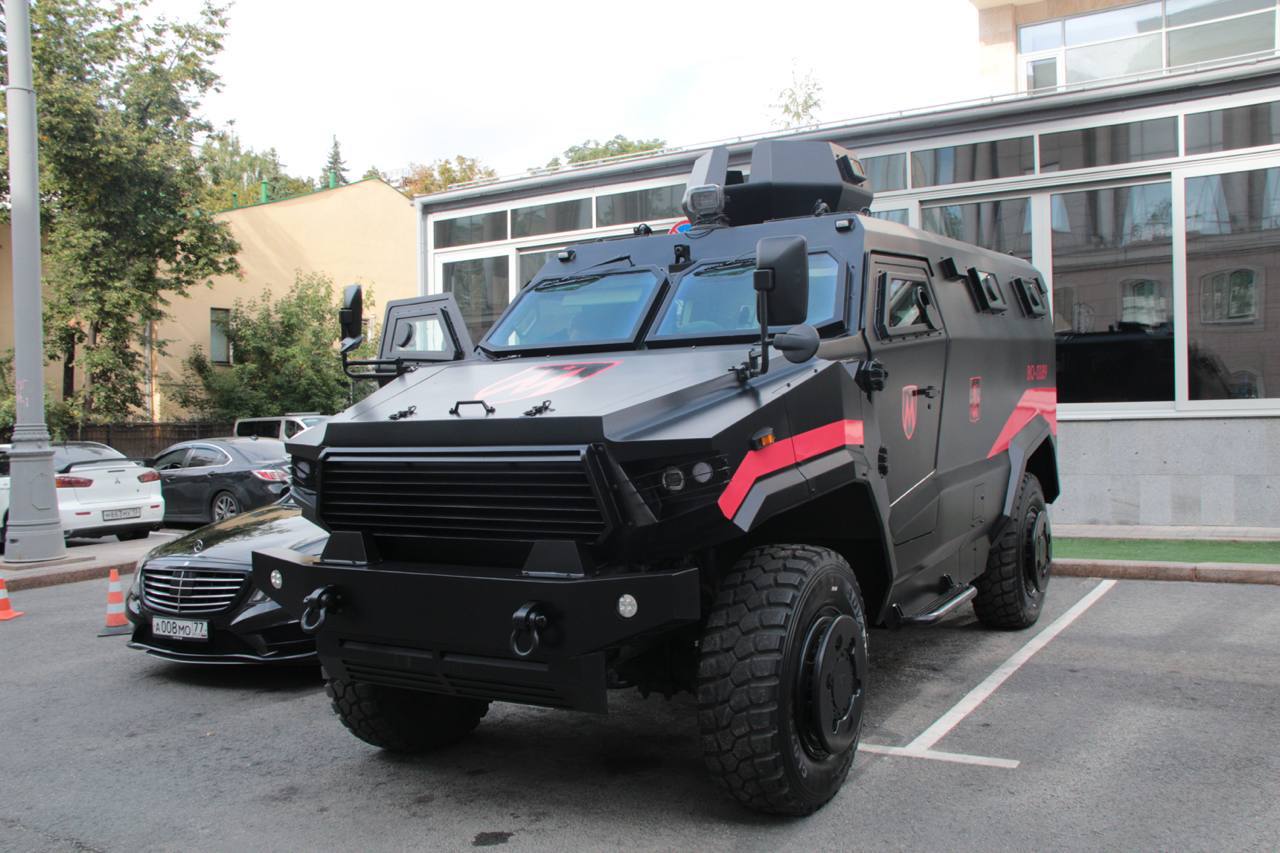A new armored tactical vehicle, reportedly made in China, has been spotted cruising through Moscow as the city steps up its security measures.
A Russian Telegram channel, Avtobusy y Vobbechle, recently shared the news, stating, “Moscow Metro continues to arm itself.”
These increased security protocols have come in the wake of protests against President Vladimir Putin’s actions in Ukraine, alongside a tragic terrorist attack on March 22 at Crocus City Hall that resulted in 145 casualties.
According to Avtobusy y Vobbechle, the military-grade vehicle has been acquired by the security department responsible for the city’s subway system. The post featured a photo of a sleek black tactical vehicle marked with the Moscow subway logo.

Avtobusy y Vobbechle/Telegram
Tsargrad, a media outlet supportive of the Kremlin, clarified that this vehicle is classified as “civilian special equipment” and carries a tractor-type license plate.
Ukrainian outlet Militarnyi identified the armored vehicle as the Dongfeng EQ2091XFB, manufactured by Dongfeng Special Vehicle Co., a branch of the Chinese state-owned Dongfeng Motor Corporation based in Hubei province. Prices for these vehicles range between $130,000 and $270,000 depending on features.
Reportedly, the unit shown in the image is outfitted with an armored turret capable of mounting a machine gun and can endure fire from an AK-47, weighing in at nine tons.
This Chinese SUV adds to Moscow’s security fleet, which already includes previously purchased domestic models like the Z-STS “Akhmat” and RIDA “Buran” armored vehicles.
In April 2023, Moscow was granted centralized authority over security operations in its metro system, collaborating with the national guard, a shift from the previous oversight by the Transportation Ministry.
Since Russia began its full-scale invasion of Ukraine in February 2022, ties between Moscow and Beijing have strengthened, both militarily and diplomatically.
Additionally, trade between the two nations has surged, particularly in Chinese automobile exports, which skyrocketed by 593% year-over-year, according to official customs data.
Despite this growth, concerns over potential U.S. secondary sanctions have slowed trade this year. Reports indicate that up to 98% of Chinese banks are now refusing cross-border transactions in yuan, leading to frustrations among Russian traders.
